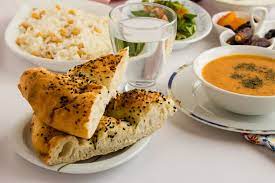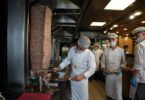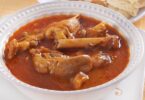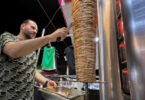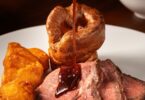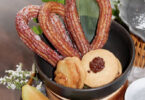Monitoring Desk
ISTANBUL: Ramadan is a holy month of fasting and spiritual reflection for Muslims worldwide.
In recent years, there has been an increasing focus on the health benefits of the Ramadan diet, with experts emphasizing its potential to promote weight loss, improve metabolic health and enhance overall well-being. Here are the various components of the Ramadan diet explained by experts and its potential benefits and drawbacks, along with a few tips for those looking to maintain a healthy lifestyle during the holy month.
Eating speed
According to the Nutrition and Diet Specialist Veysel Ciğerli, Ramadan should be spent adhering to healthy eating rules while particular attention should be given to eating speed at iftar – meals to break the daily fast. In addition, he also stressed the vital importance of a robust immune system.
“Healthy, adequate, and balanced nutrition is important for our lives at every stage. Eating our meals for 15-20 minutes instead of eating quickly during iftar meals will help us understand the feeling of satiety. Meals should not be rushed, and food should be eaten slowly to aid digestion. The soup should be a must-have on the iftar table for healthy individuals fasting, as it will soothe the stomach. You can break your fast with half a glass of water and then soup. Before moving on to the main course, a 10-15 minute break should be taken,” he advised.
“If you cook your meals using baking, grilling and boiling methods rather than frying, you will not have digestive problems. In this way, you will prevent weight gain during Ramadan. You can use whole-grain bread, bulgur pilaf, and bran pasta instead of carbohydrates to increase your feeling of satiety. Pide and güllaç sweets are must-haves during Ramadan. Of course, we will consume these foods, but we must pay attention to portion control and timing. By consuming a portion of fruit and yogurt or ayran about 2-2.5 hours after breaking our fast, we can balance our blood sugar with a healthy snack,” he added.
Consuming water
Meanwhile, another specialist, Neurologist, and Clinical Neurophysiologist, Okan Bölükbaşı, warned that prolonged fasting, dehydration, and changes in sleep patterns could trigger migraines. Therefore, he recommended that migraine patients should eat regularly and drink plenty of fluids.
Migraines are a common health problem for those who fast during Ramadan, especially during the first few days when the change in eating habits can trigger migraine attacks. The changes in eating, drinking, and sleep patterns can trigger seizures in migraine patients and cause headaches in those who do not have the condition.
Bölükbaşı explained that the treatment for migraines varies from person to person and that migraines are characterized by severe headaches accompanied by sensitivity to light and sound, as well as nausea, vomiting, and weakness. These symptoms can last four to 72 hours and sometimes a week.
Bölükbaşı emphasized the importance of investigating the underlying causes of migraines when patients seek medical attention for their headaches. Treatment plans for migraines depend on the patient’s age, the frequency of the attacks, other medical conditions, and the type of migraine.
During Ramadan, Bölükbaşı recommended that migraine patients pay more attention to their diet and eat regularly, get enough sleep, and drink plenty of fluids.
Migraine patients have more sensitive brains than others, and changes in the external environment, such as solid smells and flashing lights, can trigger migraines. In addition, changes in the internal environment, such as fluctuations in blood sugar, can also trigger migraines, he added.
The health professional also advised that migraine patients should be more careful since their routines will be disrupted. “Migraine patients should eat food that prevents blood sugar drops, such as boiled potatoes, eggs, and tahini, during their predawn meal. Drinking fluids is also essential between iftar and suhur (the last predawn meal before the start of the daily fast),” he concluded.
Courtesy: (Dailysabah)

